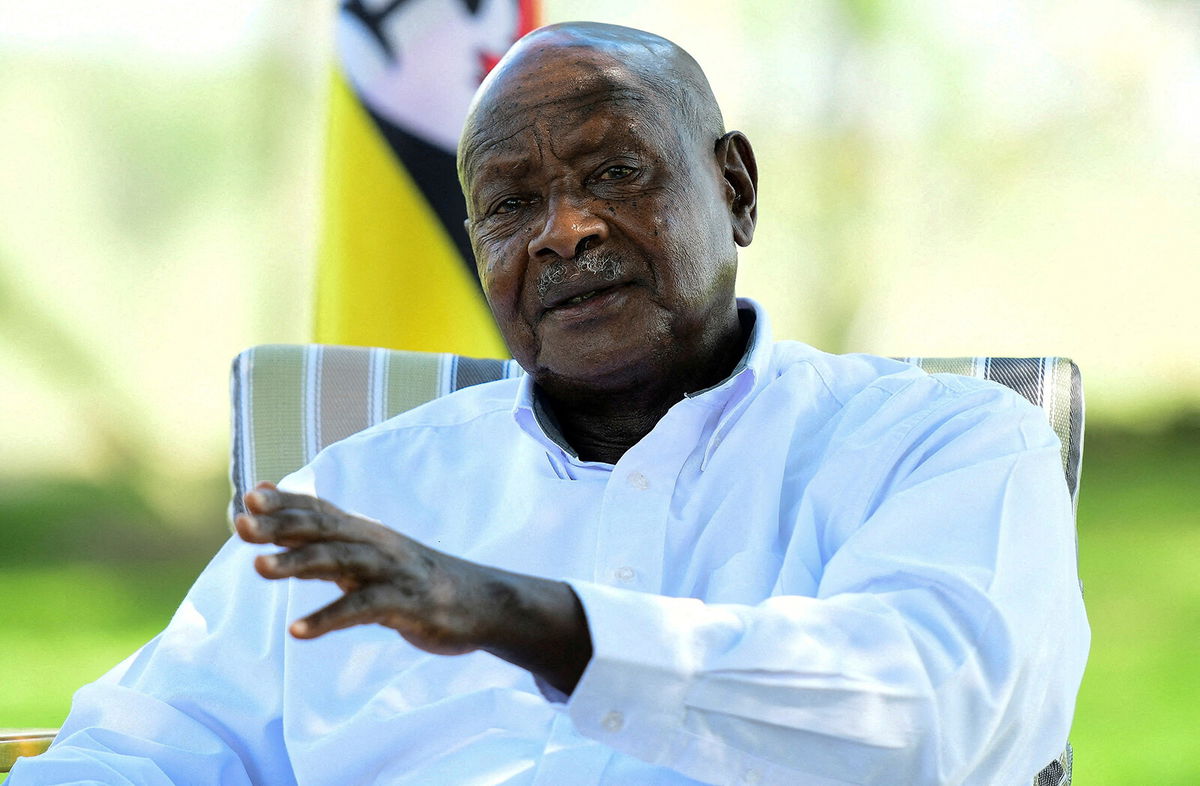Uganda’s President Museveni slams ‘Western double standards’ over coal mine plans

Uganda's President Yoweri Museveni accuses the West of hypocrisy in tackling the world's climate crisis.
By Nimi Princewill, CNN
Uganda’s President Yoweri Museveni has slammed Western countries over what he calls a “reprehensible double standard” in their response to the energy crisis brought about by the Russian invasion of Ukraine.
In a Twitter post on Sunday, Museveni singled out Germany for demolishing wind turbines to allow for the expansion of a coal-fueled power plant as Europe battles an energy crisis triggered by the Russia/Ukraine war.
In September, Russia which had come under a raft of Western sanctions over its invasion of Ukraine, halted gas supplies to Europe, leaving the region that was dependent on Russian oil and gas imports scampering for alternatives.
Germany had proposed phasing out coal-fired power plants by 2030 to reduce carbon emissions. But Europe’s largest economy has now been forced to prioritize energy security over clean energy as gas supplies from Russia froze. Just like Germany, many other European countries are reviving coal projects as alternatives to Russian energy.
Making ‘a mockery’ of climate targets
Museveni, 78, says Europe’s switch to coal-based power generation “makes a mockery” of the West’s climate targets.
“News from Europe that a vast wind farm is being demolished to make way for a new open-pit coal mine is the reprehensible double standard we in Africa have come to expect. It makes a mockery of Western commitments to climate targets,” the Ugandan leader said, while further describing the move as “the purest hypocrisy.”
CNN has contacted the German Embassy in Uganda for comment.
In a statement released on his official website, Museveni stated that “Europe’s failure to meet its climate goals should not be Africa’s problem.”
The African continent has remained the most vulnerable to climate change despite having the lowest emissions and contributing the least to global warming. While wealthy nations (who are the largest emission producers) are better equipped to manage the impacts of climate change, poorer countries like those in Africa are not.
“We will not accept one rule for them and another rule for us,” said Museveni, who has ruled the east African nation for 36 years.
Bearing the brunt of climate change
Uganda aims to explore its oil reserves at a commercial level in the next three years but a resolution by the European Union parliament in September warned that the project will displace thousands, jeopardize water resources and endanger protected marine areas.
Museveni reacted to the resolution at the time, insisting that “the project shall proceed,” and threatened to find new contractors if the current handlers of the oil project “choose to listen to the EU Parliament.”
African leaders have continued to push richer nations for climate adaptation funding at the ongoing COP27 climate summit in Egypt, as many parts of the continent grapple with severe drought, flooding, and other catastrophic effects of climate change.
Malawi’s President Lazarus Chakwera, who is attending the COP27 summit, said his country and other poorer nations “continue to carry the weight of carbon emissions from biggest polluters elsewhere.”
Chakwera said he lobbied in Egypt for more climate funding from wealthier nations, adding: “Despite our marginal contribution to global warming, we continue to bear the brunt of worsening climate change impacts, with 10% of our economic losses being occasioned by disasters.”
A pledge by developed countries to pay $100 billion every year from 2020 to help the developing world switch from fossil fuels to clean energy has yet to be fulfilled.
The-CNN-Wire
™ & © 2022 Cable News Network, Inc., a Warner Bros. Discovery Company. All rights reserved.
